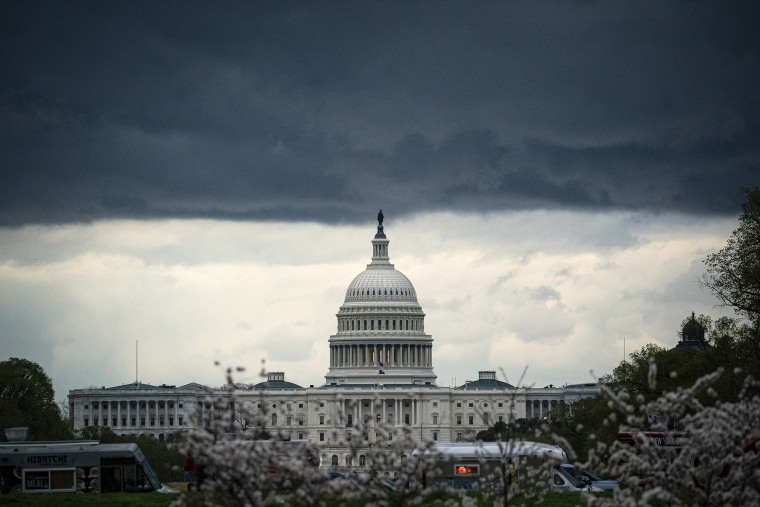WASHINGTON — The United States government has enough money to keep paying its bills until at least July, and potentially longer, the nonpartisan Congressional Budget Office estimates in a report released Wednesday.
The U.S. hit the statutory debt ceiling in January and has since been taking "extraordinary measures" to meet the country's obligations and avert default, which Treasury Secretary Janet Yellen has said would be economically calamitous.
"CBO estimates that under its baseline budget projections, the Treasury would exhaust those measures and run out of cash sometime between July and September of this year," CBO said in the new report, which was published Wednesday.
The estimate is different than that of the Treasury Department, which has set a June 5 deadline for Congress to act or risk default. Treasury makes its own calculations about available funds and will issue a final decision, which it tends to adjust along the way. Asked about CBO's report, a Treasury Department spokesperson referred NBC News to Yellen's latest letter, which set the early June timeline.
“Of course, we want to see what CBO has to say, but ultimately Treasury will set" the deadline, Senate Majority Leader Chuck Schumer told reporters on Tuesday. “We’re continuing to speak about how bad it would be to let the nation default — how it’s not an abstract concept, it’s going to affect every American family badly.”
The report comes amid an escalating battle between the White House and House Republicans about how to resolve the debt ceiling crisis. Republicans, who control the House, say they want to attach spending cuts to any bill.
Raising the limit would not authorize new spending; it would enable the U.S. to keep borrowing to pay the bills that Congress has legally imposed.
Schumer said his message to House Speaker Kevin McCarthy is: “Show us your plan. He has not. He said he wants to make cuts; he has an obligation to show what those cuts are.”
Some House Republicans, like Rep. Ralph Norman, R-S.C., have indicated they will try to craft a debt limit bill that can get 218 GOP votes, although it's not clear they can achieve that near-unanimity.
“I think he’s going to have a rough time getting any plan that the Republicans, that all the caucus can support,” Schumer said.
McCarthy recently met with President Joe Biden, although there's no sign of progress toward an agreement. Biden insists that extending the debt ceiling is nonnegotiable.
Senate Minority Leader Mitch McConnell, R-Ky., said the onus is on McCarthy to work out a debt limit bill in the House.
“I wish him well. But I think the American people need to know, there’s not going to be a default," McConnell told reporters on Tuesday. "Not going to be a default.”

